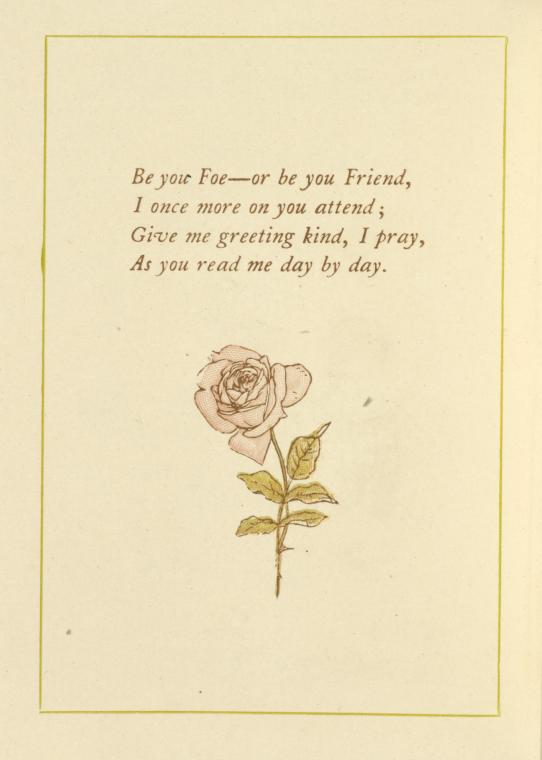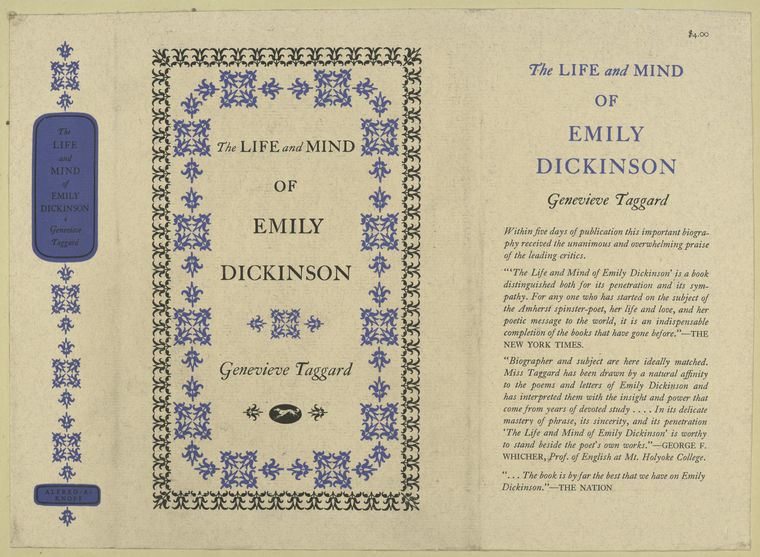Biblio File, Poetry
Inside Poetry Series: What Is Poetry, Anyway?
The last time many of us read a poem, even semi-voluntarily, we were in elementary school. If you're thinking of returning to poetry now, you may have tons of questions: what really constitutes poetry? How do you find poems that suit your tastes? How do you find cool new poets or figure out which classics to read?
We're here to help, and we're going to start at the beginning...
What is poetry?
It's easy to think of poetry simply as words that rhyme and are organized into lines, like "We Real Cool" by Gwendolyn Brooks:
THE POOL PLAYERS.
SEVEN AT THE GOLDEN SHOVEL.
We real cool. We
Left school. We
Lurk late. We
Strike straight. We
Sing sin. We
Thin gin. We
Jazz June. We
Die soon.
But not all poetry rhymes, and not all poems are broken into lines. Prose poetry, like Marcelo Hernandez Castillo’s "Field Guide for Ending Deportation," appears like paragraphs on the page:
I confess to you my inadequacies. I want to tell you things I do not know about myself. I’ve made promises to people whom I will never see again. I’ve cried in an airport bathroom stall in El Paso, TX when immigration denied my father’s application. It felt like a mathematical equation—everything on one side needed to equal everything on the other. It almost made sense to be that sad. I am not compelled to complicate this metaphor. I’m selling this for two dollars. Years ago, on my birthday, I came out to my friends. I thought about the possibility of painting their portraits. What a stupid idea. I’ve started to cover up certain words with Barbie stickers in my journal. It occurs to me, sitting in my car, at a Dollar General parking lot, in search of cheap balloons for a party which I do not care about, that I am allowed my own joy. I pick the brightest balloons, pay, drive home and dress for the party. I mouth the words happy birthday to you in a dark room lit by everyone’s phone cameras. Afterwards, I enter all of my emails from five years into a cloud engine and the most used word is ok. I confess that I have had a good life. I spend many nights obsessing over the placement of my furniture. I give you my boredom. I give you my obligation. I give you the night I danced and danced and danced at a child’s birthday party, drunk and by myself. I’ve been someone else’s shame. It’s true, at its core, amá was deported because she was hit by a car. For years to come, this will be the ending of a sad joke she likes to tell. I laugh each time she tells the joke to strangers. Something about how there is more metal than bone in her arm. Something about a magnet. She says I thought I had died and death meant repeating a name forever. She says el jardin encierra la boca de mis pasos. But this is a bad translation. It’s more like I felt like a star, I felt like somebody famous.
What isn't poetry?
Attempts to define poetry may end up turning in circles; some might say poetry is anything that isn’t prose, and prose is what isn’t poetry. This doesn’t get us very far, and it speaks to how difficult it is to pin down what poetry is.
Emily Dickinson defined poetry in terms of its effect: "If I feel physically as if the top of my head were taken off, I know that is poetry...Is there any other way?" Beyond the beheading approach, however, there are a few other ways to recognize poetry, and historically, poets themselves have helped us define it.
To Robert Frost, poetry is "What gets lost in translation."
Ezra Pound believed, "Poetry is a composition of words set to music," stressing the importance of rhythm to the form.
John Stuart Mill describes poetry as personal and inward-facing: "Poetry is overheard. Eloquence supposes an audience; the peculiarity of poetry appears to us to lie in the poet's utter unconsciousness of a listener. Poetry is feeling confessing itself to itself, in moments of solitude, and bodying itself forth in symbols which are the nearest possible representations of the feeling in the exact shape in which it exists in the poet's mind."
Canadian poet Anne Carson offers up a vivid (and possibly terrifying) definition in the Red Doc>:
What is the difference between
poetry and prose you know the old analogies prose
is a house poetry a man in flames running
quite fast through it.
Carson suggests that part of what defines poetry is its fiery urgency and its relative speed.
A more straightforward definition of poetry might center around its attention to language, density of meaning, image, and play of rhythm. Defining poetry is not a science, however; poetry’s boundaries are constantly shifting and mutating as poets innovate and provide new ways of thinking about the configuration of words.
Other topics in the Inside Poetry series:
- Where Do I Find Poems?
- What are the Different Types of Poetry?
- How Should I Read Poems Out Loud?
- What is the Anatomy of a Poem?
---
Have trouble reading standard print? Many of these titles are available in formats for patrons with print disabilities.
Staff picks are chosen by NYPL staff members and are not intended to be comprehensive lists. We'd love to hear your ideas too, so leave a comment and tell us what you'd recommend. And check out our Staff Picks browse tool for more recommendations!
Read E-Books with SimplyE
 With your library card, it's easier than ever to choose from more than 300,000 e-books on SimplyE, The New York Public Library's free e-reader app. Gain access to digital resources for all ages, including e-books, audiobooks, databases, and more.
With your library card, it's easier than ever to choose from more than 300,000 e-books on SimplyE, The New York Public Library's free e-reader app. Gain access to digital resources for all ages, including e-books, audiobooks, databases, and more.
If you don’t have an NYPL library card, New York State residents can apply for a digital card online or through SimplyE (available on the App Store or Google Play).
Need more help? Read our guide to using SimplyE.


Comments
how can I subscribe to this series?
Submitted by Lisa (not verified) on May 3, 2018 - 3:50am
Inside Poetry Series
Submitted by Norm S. on May 10, 2018 - 10:35am
The Inside Poetry Series Expands
Submitted by Norm S. on June 12, 2018 - 9:44am